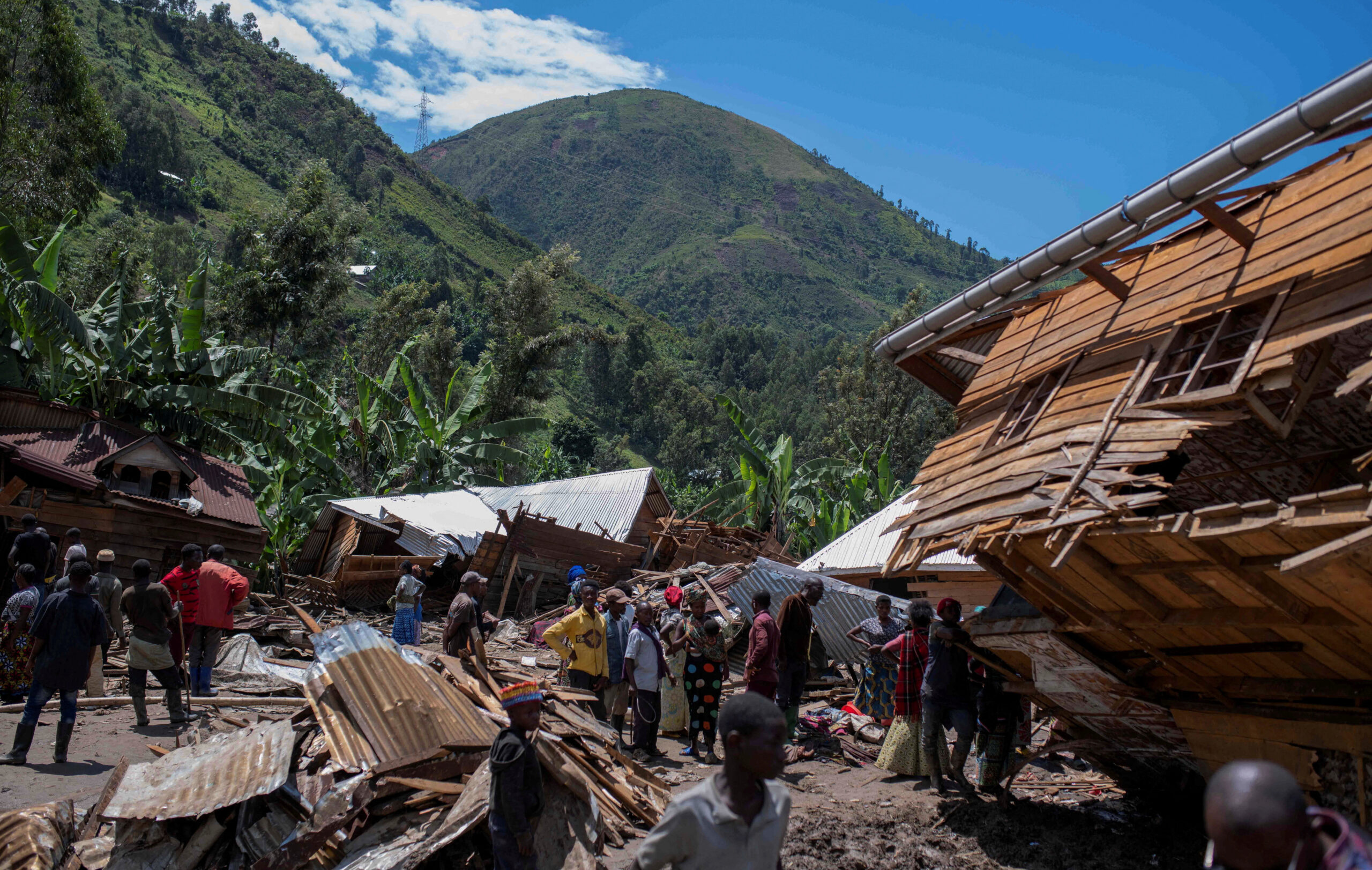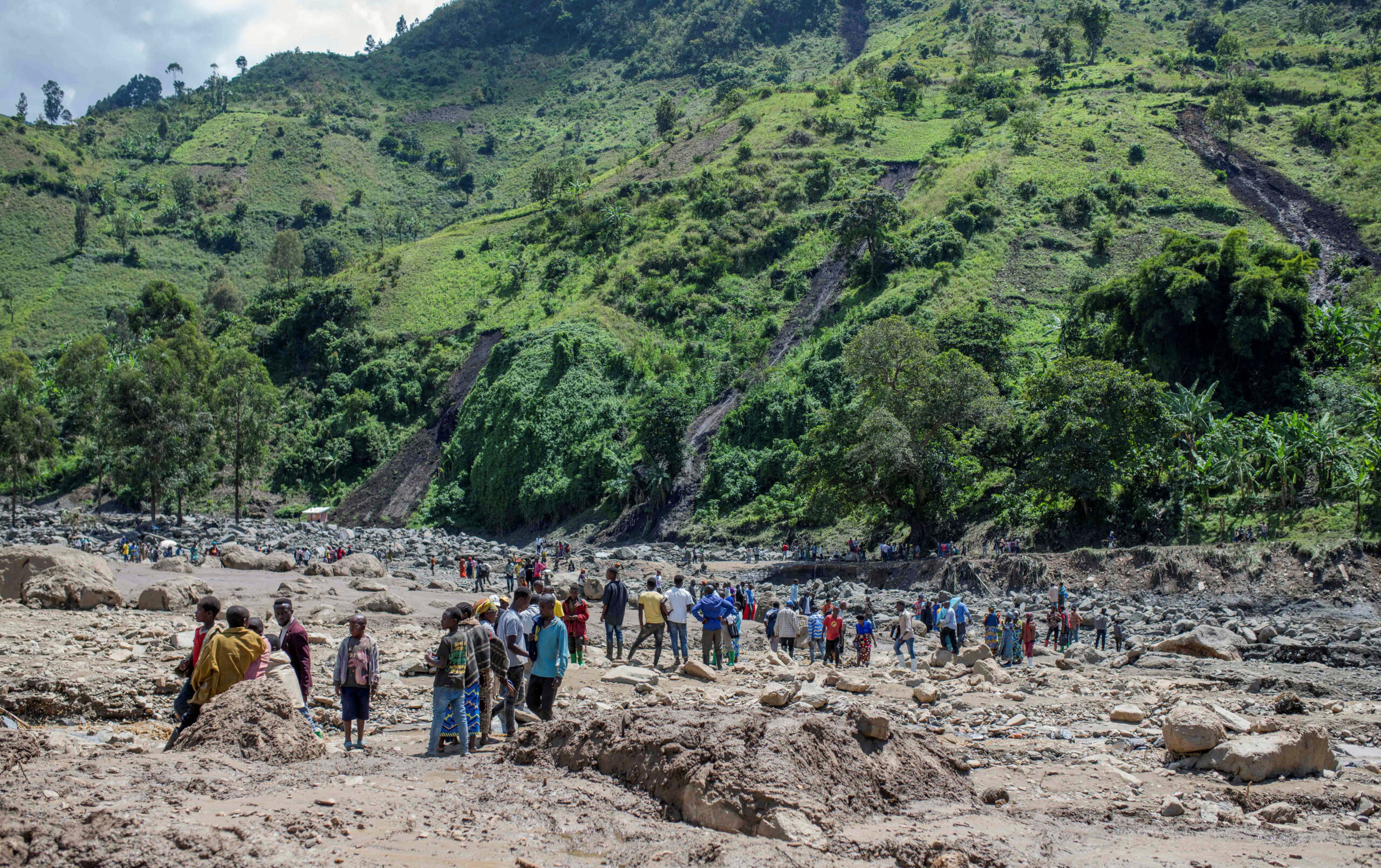KALEHE, Democratic Republic of Congo (Reuters) – More than 5,500 people are still unaccounted for in an area in East Democratic of Congo where floods killed more than 400 people last week, a local official said on Tuesday, as shaken survivors waited for food aid.
Scores of bodies have been recovered from the villages of Bushushu and Nyamukubi in South Kivu province’s Kalehe territory since torrential rain caused landslides and flash floods on Thursday, flattening buildings and sweeping away crops.
Mass graves were dug over the weekend to dispose of the dead, many of whom were women and children, prompting complaints from some civil society groups who said the burials were undignified.
Read More: DRC security situation concern for SADC Troika
Red Cross workers have sounded the alarm about a lack of supplies and equipment to assist more than 8,800 affected residents, many left homeless and traumatised after one of the deadliest natural disasters in Congo’s recent history.

Kalehe administrator Thomas Bakenga Zirimwabagabo said on Tuesday that 411 bodies had been found so far and that at least 5,525 people were still missing.
A government delegation arrived in the area on Monday evening and was expected to bring food and tents for the survivors. Many have been staying with relatives or in public buildings left intact, leading to overcrowding.
Read More: Congo flood victims buried en masse as death toll rises above 400
Government officials have told humanitarian workers to stop mass burials and wait for coffins to be delivered to the area.
The floods are the latest major disaster in Africa highlighting the vulnerability of countries with poor urban planning and weak infrastructure to the impacts of climate change.
They have led to calls for better response plans as warming temperatures are increasing the intensity and frequency of Africa’s rains, according to United Nations climate experts.


